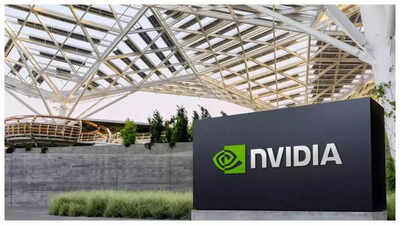- News
- Technology News
- Tech News
- US lawmaker has a plan solve 'Nvidia-China problem' that caused trillions of 'loss' for American companies
Trending
US lawmaker has a plan solve 'Nvidia-China problem' that caused trillions of 'loss' for American companies
A U.S. lawmaker is planning to introduce legislation to track AI chips, like Nvidia's, aiming to prevent their smuggling into China. This move follows reports of Chinese AI developer DeepSeek using these chips to create advanced AI systems. The bill proposes tracking chips to ensure export license compliance and disabling unauthorized chips.
A U.S. lawmaker is set to introduce legislation to track the location of AI chips, such as those produced by Nvidia, to curb smuggling into China, spotlighting the emergence of China’s DeepSeek. According to Reuters, Representative Bill Foster, a Democrat from Illinois and former particle physicist, aims to address widespread reports of Nvidia chips being smuggled into China in violation of the US export controls. DeepSeek, a Chinese AI developer, has reportedly utilized these prohibited Nvidia chips to build advanced AI systems that rival US counterparts, raising national security concerns, per analyst firm SemiAnalysis.
Foster’s bill, expected in the coming weeks, would mandate the US Department of Commerce to develop regulations within six months to enforce two measures: tracking AI chips to ensure compliance with export licenses and preventing unauthorized chips from functioning. Foster emphasized the urgency, citing credible, undisclosed reports of large-scale smuggling. “This is not an imaginary future problem,” he told Reuters, warning of the Chinese military potentially using smuggled chips to develop weapons or pursue artificial general intelligence, akin to nuclear technology in its implications.
The legislation responds to cases like DeepSeek’s, which reportedly leveraged Nvidia chips—critical for AI systems like chatbots and potentially bioweapons—despite U.S. restrictions under both the Biden and Trump administrations. A recent case in Singapore saw three individuals, including a Chinese national, charged with fraud involving servers possibly containing Nvidia chips, underscoring the smuggling issue.
Google already uses location-tracking for its chips
The bill enjoys bipartisan support, with Democrats like Representative Raja Krishnamoorthi and Republicans like Representative John Moolenaar, chair of the House Select Committee on China, backing the concept. Moolenaar told Reuters the technology exists to integrate location-tracking into AI chips, and Krishnamoorthi called it a “creative solution” to halt smuggling.
Foster’s second goal—disabling unlicensed chips—is more complex but part of ongoing discussions with chip providers. Nvidia declined to comment, while Google did not respond to Reuters’ inquiries about its chip-tracking practices.
End of Article
Latest Mobiles
Follow Us On Social Media





















